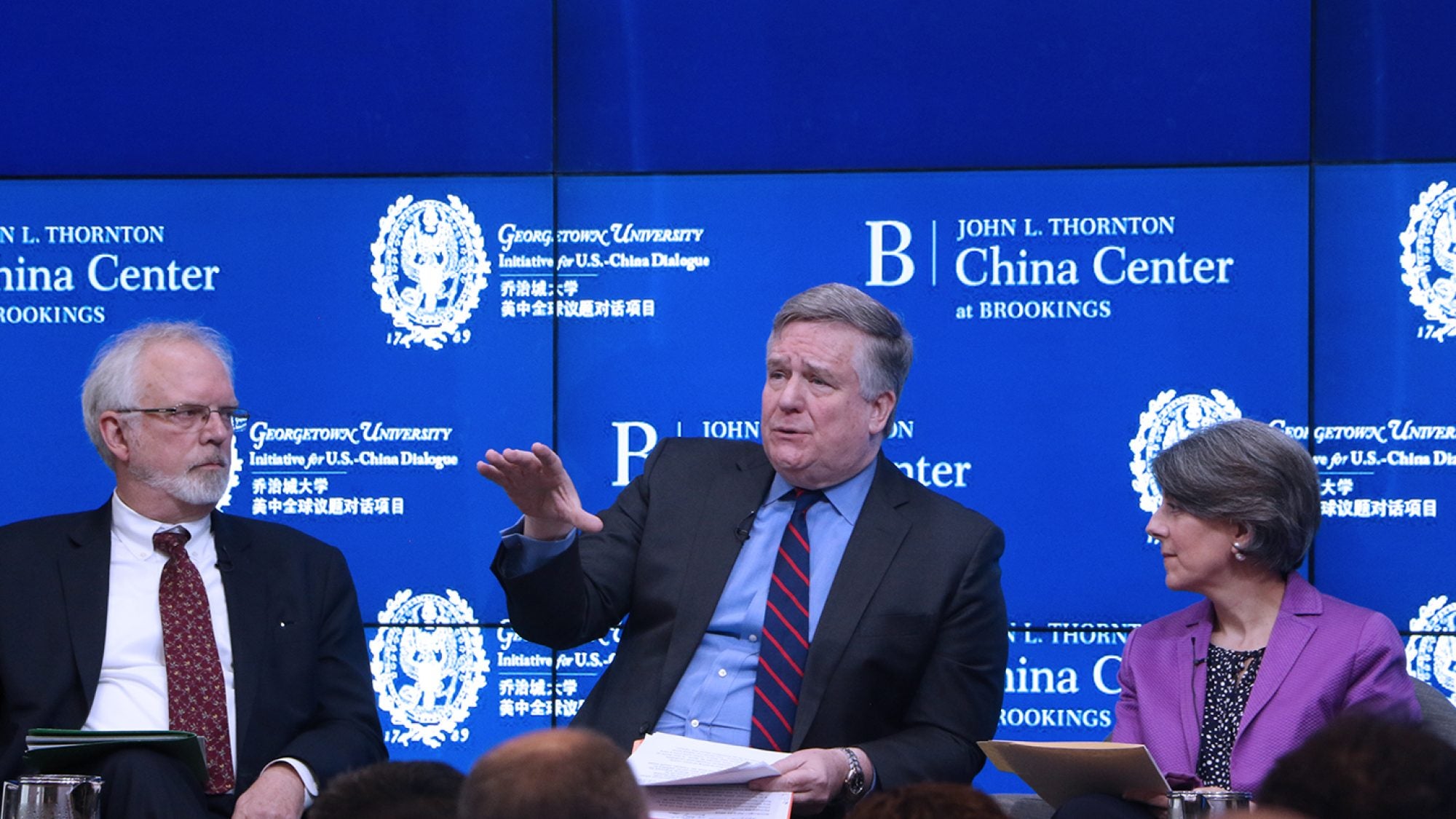5 Questions for Dennis Wilder
Q. What exactly is a spy balloon? What information is the balloon believed to have captured?
Wilder: A spy balloon is a package of sensor and solar panels that are slung below a large helium balloon that collects intelligence. In this case, according to the Pentagon, the balloon also had propellers and a rudder that allowed it to maneuver over its intended collection target, although the balloon itself is largely carried along the jet stream in the upper atmosphere at roughly 60,000 feet.
The type of collection this system did depended on the package of sensors onboard. We will not know exactly what those were unless the Navy is able to retrieve them from the ocean where the balloon landed. Typically, you would expect there to be a high-resolution imaging system and sensor to capture different types of communication signals.
Q. The Pentagon has said that China conducted previous balloon surveillance flights in the U.S. Why was this time different?
Wilder: There are several reasons this flight was unprecedented. It spent a long time over U.S. territory and loitered over areas where the United States has very sensitive military installations. It was also conducted at a sensitive moment in U.S.-China relations, just prior to Secretary Blinken’s trip to Beijing. Finally, it was unprecedented because Americans were able to view it in the sky with the naked eye.
Q. Why do you think China would use a suspected surveillance technique that’s so publicly visible to civilians?
Wilder: This is an open question that no one is able to answer at this point. It is entirely possible that the Chinese People’s Liberation Army conducted this operation without coordinating it appropriately with civilian agencies of the Chinese government that might have objected. Reporting indicates that the Chinese Ministry of Foreign Affairs was completely in the dark when approached by U.S. diplomats last week inquiring about the balloon.
Q. How will this incident affect U.S.-China relations, particularly after U.S. Secretary of State Antony Blinken delayed his first official trip to China? Do you think there was a connection between the timing of his visit and the balloon?
Wilder: The Biden Administration and the Chinese government are both signaling that they do not want this incident to derail the attempts since President Biden and President Xi Jinping met in Bali last November to put a floor under the downward trajectory of U.S.-China relations.
But it will take deft diplomacy to overcome this setback in relations, particularly if the United States is able to publicly release physical evidence of surveillance systems. This would be a profound embarrassment to President Xi and the Chinese government that could delay any attempt to reschedule Secretary Blinken’s visit to Beijing.
The timing of this surveillance mission is perplexing and leads me to conclude that while President Xi, who is also chairman of the Central Military Commission, almost certainly has been briefed on the overall collection program, he may not have been informed of this particular mission.
